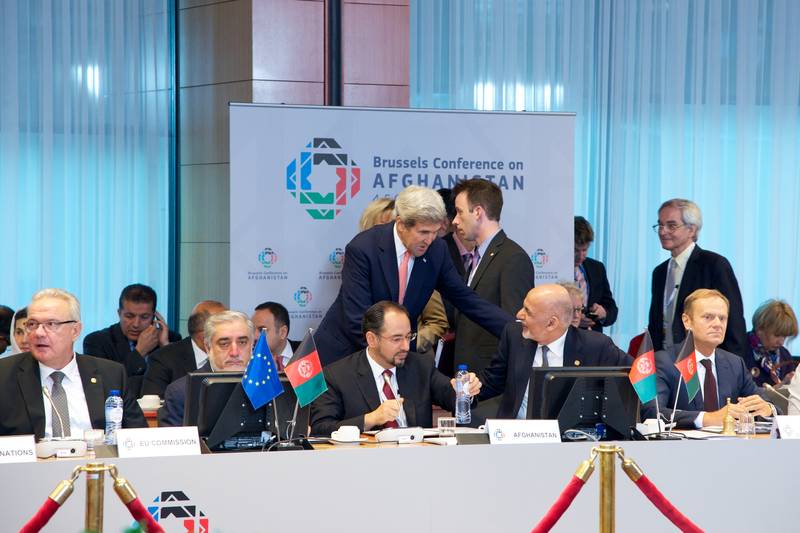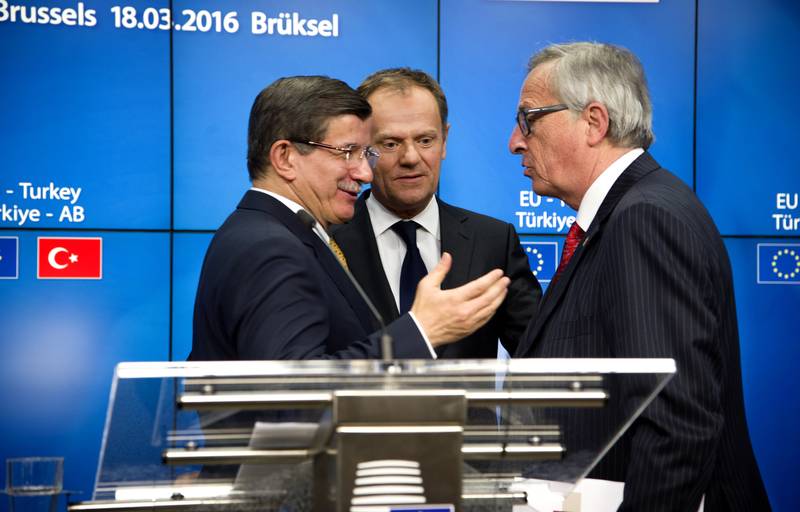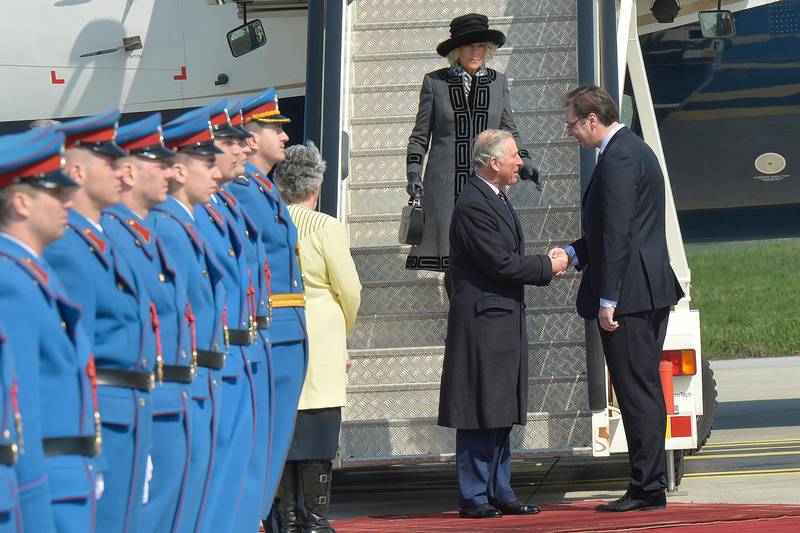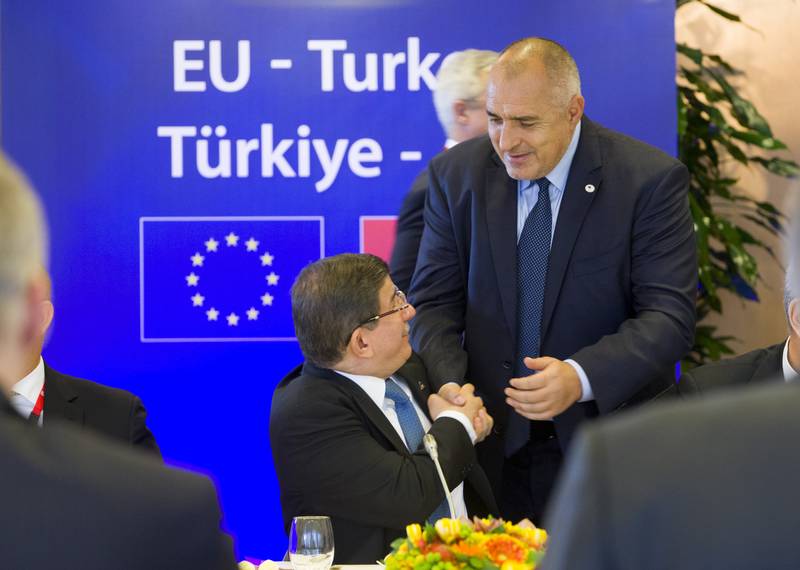Migration Enters the New EU Strategy on Afghanistan
Adelina Marini, July 26, 2017
 The European Commission proposed on Monday (July 24th) a upgrading of the elements of the European Union's strategy towards Afghanistan, adding a new one - migration. In the current strategy, adopted in 2014, the core elements were four: promoting peace, security and regional stability; enhancing democracy; promoting economic and human development; developing rule of law and respect for human rights, especially those of women and children. The Commission's proposal suggests to merge the second and fourth elements in order to add migration. The reasons for this are both internal and external.
The European Commission proposed on Monday (July 24th) a upgrading of the elements of the European Union's strategy towards Afghanistan, adding a new one - migration. In the current strategy, adopted in 2014, the core elements were four: promoting peace, security and regional stability; enhancing democracy; promoting economic and human development; developing rule of law and respect for human rights, especially those of women and children. The Commission's proposal suggests to merge the second and fourth elements in order to add migration. The reasons for this are both internal and external.
On the one hand, the situation in Afghanistan has been deteriorating dramatically over recent years with the rise of the influence of rebels and terrorists. The economic situation is also getting worse. Against this background, a record number of Afghan people returning from neighbouring countries such as Pakistan and Iran was noted over the last year, which placed significant pressure on society in the country, where human development is the lowest in the world - 36% of the population lives in poverty; almost two thirds of Afghans are illiterate; 40% are unemployed. According to the assessment of the European Union's External Action Service, Afghanistan's progress so far has been jeopardised by the high number of Afghans returning to the country, making EU plans for returning illegal migrants difficult to implement as well.
Progress compared to 2001 is significant. Access to healthcare has increased from 9% to 57%. Life expectancy has increased from 44 to 60 years, which is a significant leap. The number of students enrolled in school has increased tenfold - currently there are 8 million students, 39% of whom are girls. Women occupy 27% of the seats in Afghanistan's parliament. Gross domestic product also grew significantly - to $ 590 per capita from $ 120 in 2001. All this is beginning to collapse quickly because of the deteriorating security situation in the country. According to the International Monetary Fund, Afghanistan's economic growth has declined from an average of 10.5% in the 2002-2012 period to just 2.2% last year.
In addition, the country continues to be financially dependent on humanitarian aid. The government's own revenues are about $ 2 billion a year, which is 10.5% of GDP, and international financing in the security sector alone is $ 5 billion a year. Additionally, development aid is $ 4 billion a year. In 2015, Afghans were the second largest migrant group in Europe - 267,000 illegal immigrants. It was the Afghans who were subject to fierce controversy in the EU at the peak of the refugee crisis, as it was often said that they were primarily economic migrants. UN data shows that in 2016 there were 11 418 civilian casualties - 3498 killed and 7920 injured. The number of people killed has risen by 2% and that of the injured ones by 6%. Since 2009, the conflict in the country has resulted in the death of 24,841 people, and 45,347 were injured.
What is the EU suggesting?
After the crisis of the great refugee wave of 2015 passed, the EU focused on the long-term solution of the root causes for refugee flows. Part of these efforts is precisely the proposal to upgrade the strategy for Afghanistan. With regard to migration, it is proposed to work mainly on a bilateral, regional and multilateral level. Last October, the EU and Afghanistan negotiated a joint migration programme, covering the return, readmission and reintegration of illegal immigrants, the fight against human trafficking and smuggling of migrants. In addition, there are bilateral memoranda signed by several member states for the return of migrants. Such memoranda have been signed by a total of 7 member states: Germany, Austria, Sweden, Finland, Denmark, the United Kingdom and The Netherlands.
A readmission agreement is yet to be negotiated, which will depend on the results of the implementation of the joint plan and the bilateral memoranda. The most important and long-term work is on the creation of conditions for migratory flows to diminish and even stop. To this end, the EU is committed to working towards ensuring peace, stability and regional security; for democracy, the rule of law and human rights; support for economic and human development. Those are some quite difficult tasks, as is most clearly seen in the far more advanced countries of the EU enlargement process as well as in some member states.
Under the first priority, the EU commits to supporting the political processes of negotiating a peaceful settlement of the domestic conflict, the fight against the narcotics industry, illegal mines and other parts of the grey economy. This also includes fight against corruption. The strategy proposes several initiatives, among which are the building of the Afghan government's capacity to reach those negotiating peace and reconciliation; supporting regional economic cooperation between Afghanistan and its neighbours. It calls for maximum inclusion in the search for a political solution to conflicts.
Another priority is work on establishing democracy and promoting the respect for human rights. The Commission document recognises that despite the many positive steps taken so far and the commitment of the authorities, the human rights situation remains risky, especially with regard to women, children and human rights defenders. It is also recognised that democratic principles and civilian oversight remain a serious challenge. Democratic institutions are weak and often face corruption and non-transparent  decision-making. However, the EU is committed to continuing work on initiatives, which would address these issues. 53% of European programmes are aimed at gender equality.
decision-making. However, the EU is committed to continuing work on initiatives, which would address these issues. 53% of European programmes are aimed at gender equality.
Regarding economic development and human capital, the EU also remains very committed to supporting initiatives for strengthening the most basic social services, the role of rural economies and agriculture, promote food security measures, support for local authorities developing the exploitation of natural resources in a sustainable way. The EU will also support the country in the development of regional infrastructure connectivity and will work to strengthen the presence and participation of international financial institutions.
At the Afghanistan conference in Brussels last October, the international community pledged a total of € 13.6 billion in financial assistance. Of these, EU aid is worth € 5 billion. The EC's proposal to update the Afghanistan strategy will be discussed by EU foreign ministers at their first meeting after the summer break, which will be in October.
Translated by Stanimir Stoev
 Davutoglu, Tusk, Juncker | © Council of the EU
Davutoglu, Tusk, Juncker | © Council of the EU | © Vlada RS
| © Vlada RS Ahmet Davutoglu, Boyko Borissov | © Council of the EU
Ahmet Davutoglu, Boyko Borissov | © Council of the EU